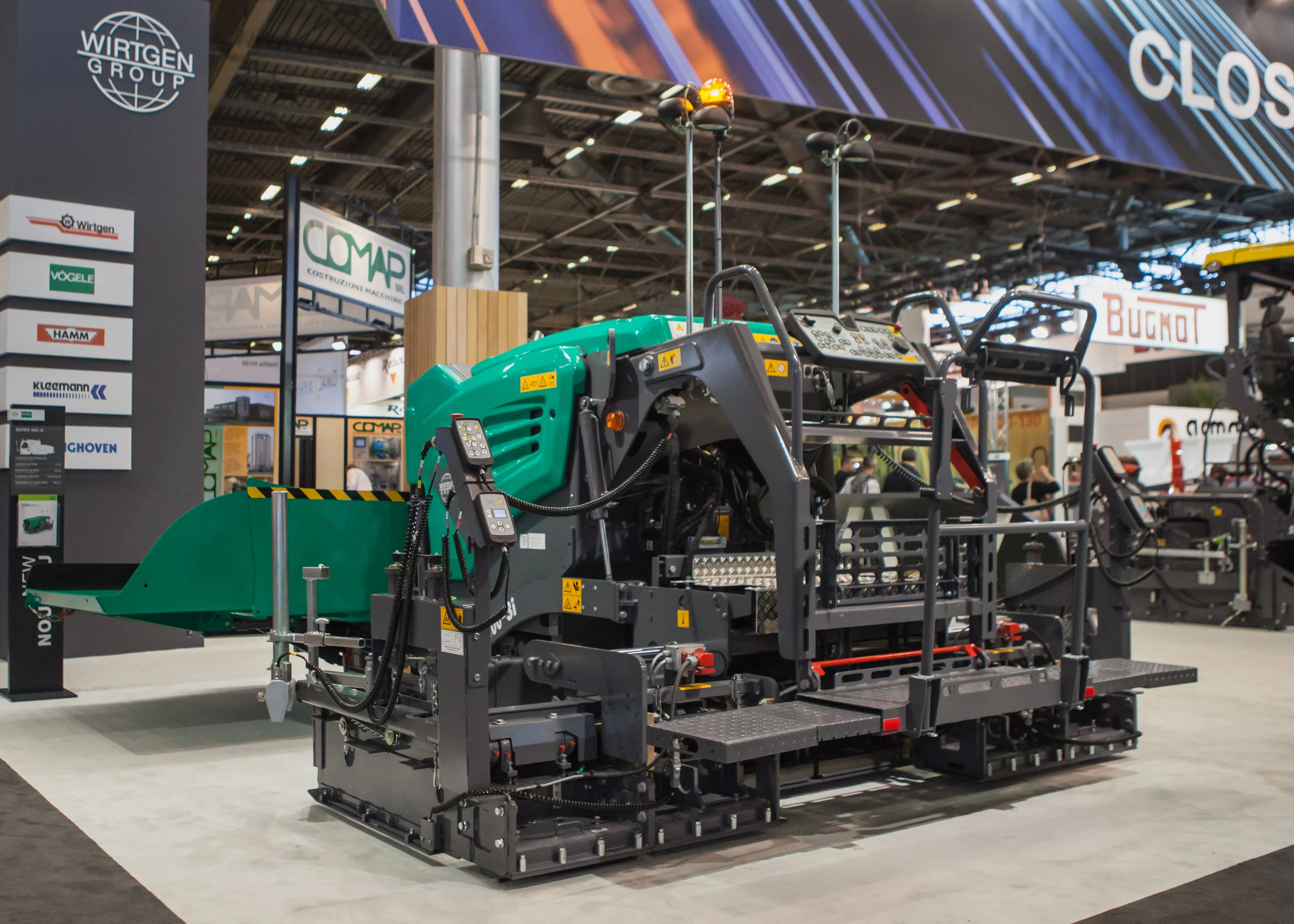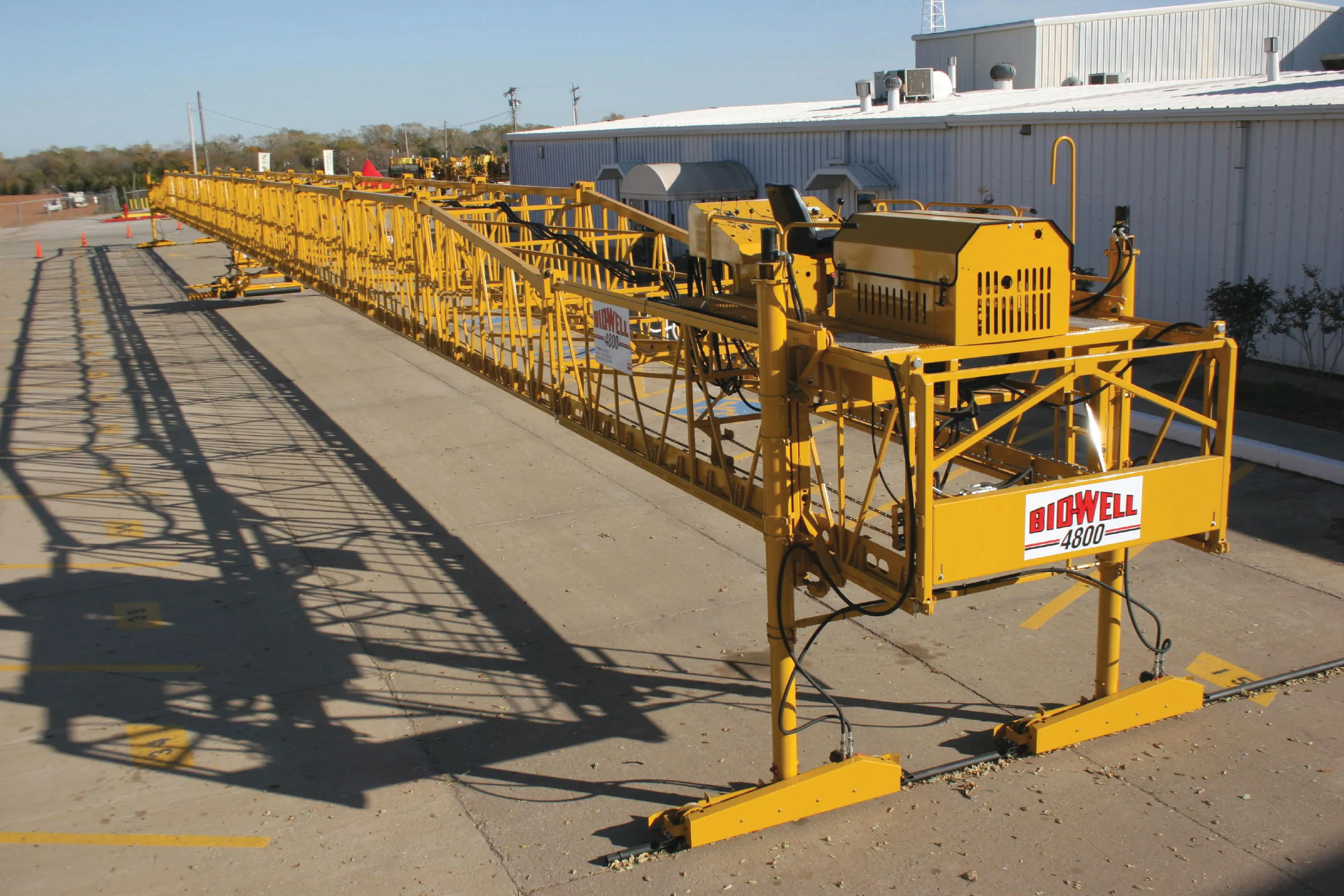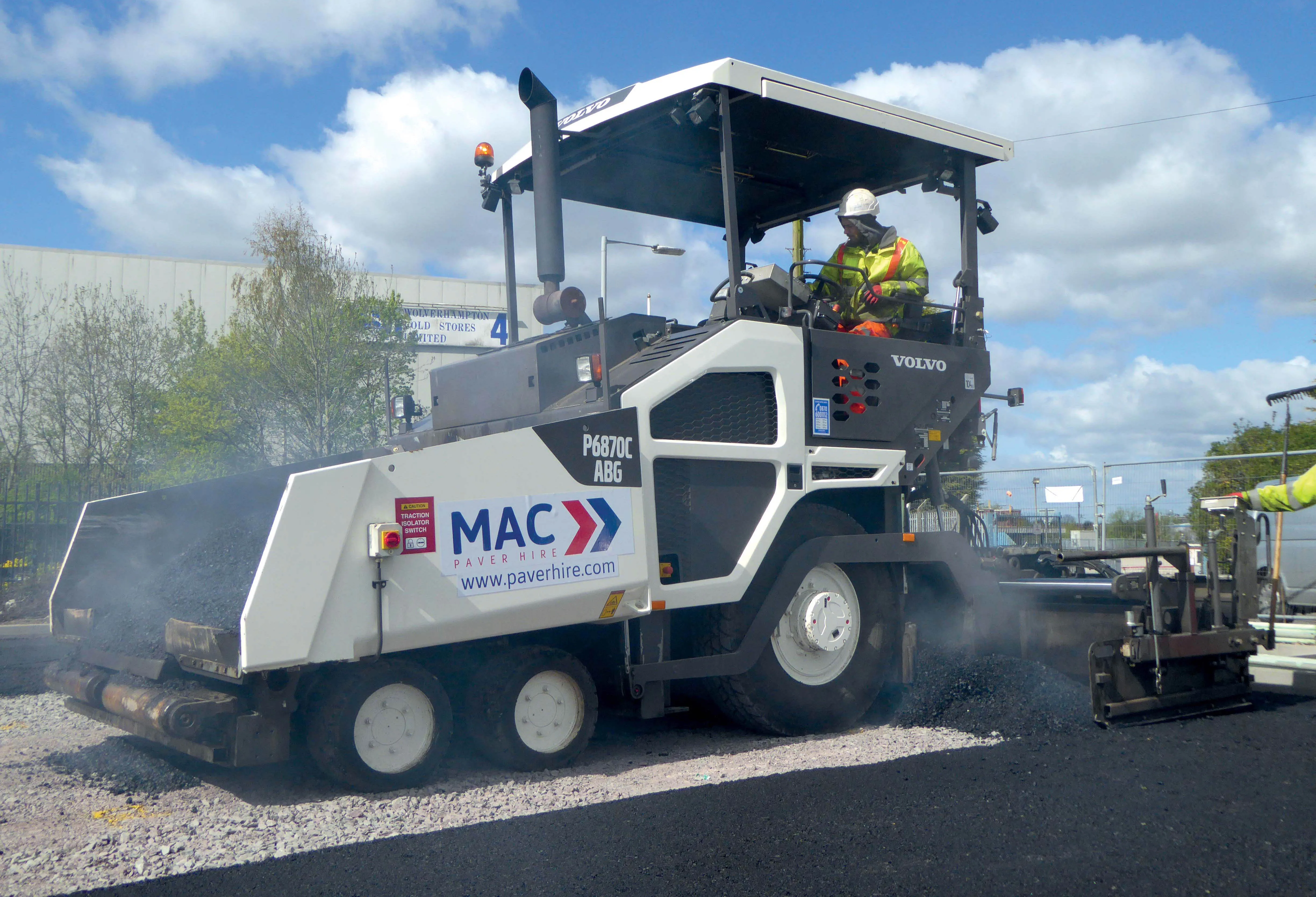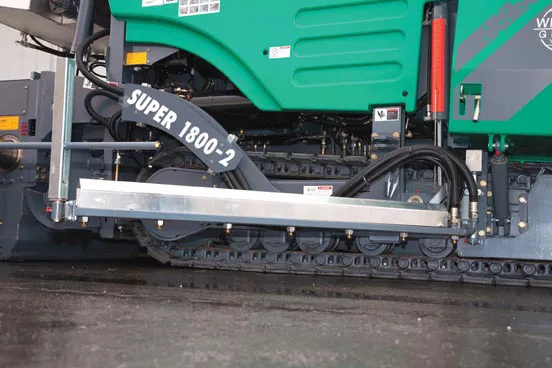Vögele says that its Super 800-3i asphalt paver is more sophisticated than previous machines in this size class. This new model replaces the firm’s earlier version and according to marketing manager Roland Schug said, “Now we have it with -3 technology.”
With the screed retracted the machine is just 1.4m wide and with a low height of 2m it can be used in a parking area or underground parking lot. Schug said, “It’s part of our Vögele mini paver class and can be used to pave small roads, footpaths or cyclepa
January 6, 2017
Read time: 2 mins

With the screed retracted the machine is just 1.4m wide and with a low height of 2m it can be used in a parking area or underground parking lot. Schug said, “It’s part of our Vögele mini paver class and can be used to pave small roads, footpaths or cyclepaths.”
The machine has a 5.7tonne hopper capacity, sufficient for small paving jobs. Schug added, “We have a
The ErgoBasic control unit is offered and Schug said, “We use the same principles but it is simpler than the normal ErgoPlus. It also has very easy to use controls on the screed.”
The firm’s NivelTronic Basic system for grade and slope control is also fitted to the machine. The screed is the firm’s AB220TV unit and this can be used for paving widths from from 0.5-2.2m, with a maximum paving width of 3.2m using extensions. Screed performance is high and Schug said, “For this type of machine you have very high compaction.” He added that the unit also stands out from its competitors by having a tamper bar screed, as its rivals feature vibration only.









